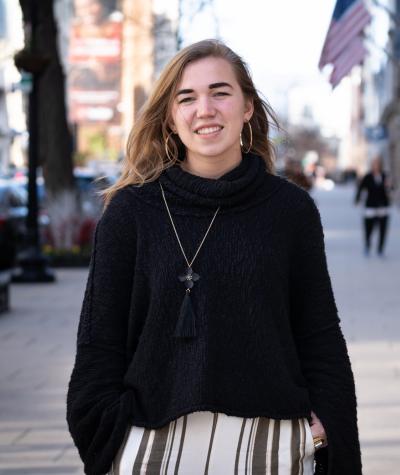In 2018, we saw tremendous growth in political engagement from one demographic in particular: the student vote. However, across the country, this tremendous progress is instead being met with targeted voter suppression, aimed at denying students that freedom.
Voter ID laws are routinely used to dissuade turnout along racial lines, but they are often designed to be onerous for college students as well. I became familiar with this practice while I was a senior at Davidson College in North Carolina, a state that is no stranger to restrictive voter ID laws.
In 2018, North Carolinians approved a constitutional amendment that required voters to provide photo identification in order to cast their ballot – a reincarnation of a previous NC law that was struck down in 2016 as racially discriminatory.
Already problematic in and of itself, the amendment was implemented poorly by the legislature.
While the law specified student IDs could count as accepted ID, it put forth a series of complicated, burdensome requirements that, simply put, meant: most schools would have to make substantive changes to their application processes and ID systems in an unreasonably short timeframe, and if they failed to make this deadline, they would be disqualified for four years.
Initially, only 5 of 17 UNC system universities passed.
I spent a lot of my time at Davidson making sure students could vote: registering them to vote, confirming their applications, and if necessary, driving them to same day register during early voting – which is just to say I knew how badly students wanted to vote.
In 2018, Davidson students’ turnout in our district more than doubled since 2014, and even surpassed 2016 numbers. It was infuriating to watch legislators pass laws to curb this growth and make our elections less accessible and therefore less representative.
Schools had barely a month to secure complying IDs. With this short timeframe, I worked with administrators to make sure we prioritized qualifying.
Under such an intense time constraint, our solution involved creating special voter ID cards to be issued for free to Davidson students. Davidson passed as an admitted institution. Even with an accepted ID, the outcome was imperfect; so, we turned to legislative advocacy.
I consulted professors, staff from admissions, and student ID officials to learn what elements of the law were prohibitive for academic institutions in securing complying ID, and educated fellow students to help advocate for our rights. We directed these concerns toward our state senator, who in turn proposed a delay amendment so more universities could qualify.
It didn’t pass the first time, or the next – but eventually, because of continuous pressure from students across the state, the deadline was extended and the provisions were relaxed.
Now, every UNC system school has compliant IDs. Back at Davidson, our students and administration worked tirelessly to successfully ensure our normal ID cards qualified.
The law is now in jeopardy: while these legislative battles unfolded, the fight against voter IDs returned to the courts. On February 18th, citing its racially discriminatory effects, a three-judge panel in the NC Court of Appeals temporarily blocked the law while the lawsuit is underway, which could last through November.
It is reassuring to know, however, that in the unfortunate case the law survives, North Carolina students will be able to vote in 2020.
North Carolina was hardly the first and won’t be the last state to face laws that dampen students’ access to the franchise: voter ID laws are constantly being introduced or worsened in states across the country.
The first step to resisting this practice is understanding your state’s laws and, if you’re a student, learning whether or not your institution’s IDs qualify.
All Americans want our elections to have integrity. This means citizens – particularly students who are voting for the first time ever – need to know their voice is wanted, and that when they show up to exercise their basic American freedom, they won’t be turned away. When lawmakers pass complicated laws that needlessly make this process more strenuous, they’re communicating the opposite.
The right to vote is a basic American freedom, and our democracy works best when everyone participates.
